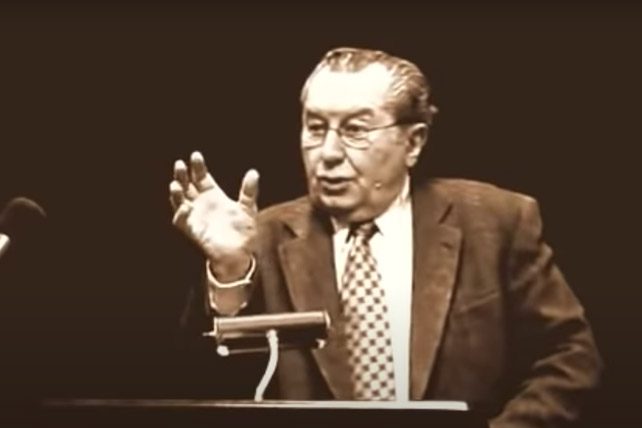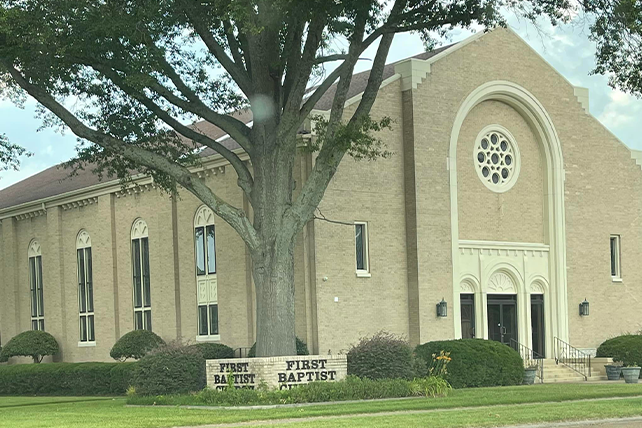What will the next church, specifically in North America, look like in 10 years? There is a convergence of trends happening right now that I see that make for an intriguing outlook for the future. Think about how much has changed just in the last 10 years. Predictions of the next church is risky business, but consider:
- The multi-site trend has absolutely exploded. It’s not just mega-churches that are adopting the model, but churches of all sizes are expanding with multiple campuses.
- Church planting and church planting networks have grown and grown and grown.
- Remember phone books? They used to be a major advertising opportunity.
- How about the explosion of social media? Yeah, it hasn’t been that long. But today most churches have a presence on social media and it’s one of the primary ways they interact with their people.
- Youth ministry is rapidly changing and shifting (it always has, but the speed has increased). In many areas, sports were left for Monday-Saturday. Today, Sunday is a full-fledged option. And not just in the evening, but in the morning too. This is, of course, only one dynamic at work in the changing culture of youth ministry.
- Bivocational pastors have become more and more common. Karl Vaters points out that “according to the 2015 Faith Communities Today survey, fewer than two-thirds (62.2 percent) of U.S. churches have a full-time pastor. That’s down from 71.4 percent in 2010.” That’s a dramatic change in a five-year period.
All of this to say: things have changed dramatically in the church in the last ten years.
And the next 10 years? Buckle up, ministry friends. The change dial is going to get cranked to the right.
Next Church: 10 Predictions
1. There is a wave of succession coming and churches that ignore it will rapidly decline.
The churches that were started in the 70s, 80s, and 90s that have thrived are still being led by their founding pastor. And as the founding pastor ages, the need to take succession seriously is growing dramatically.
But this isn’t only a dynamic at play for those church plants that grew in the seeker-sensitive, attractional movement, but this dynamic is at play in the majority of churches that are being led by Baby Boomers.
No matter the church’s context, there is a wave of succession coming in the next 10 years and the churches that ignore this and try to fill the position reactively will struggle and many will rapidly decline.
Gen X and Millennial leaders will increasingly be in positions of senior staff and this, I’m sure, is hard to imagine for many leaders. But it’s coming — fast.
The next church will decide to be intentional about pastoral succession will thrive in the next 10 years and beyond.
William Vanderbloemen has written a book on the topic. If you want to consider what good succession can look like, give it a read. “Next: Pastoral Succession That Works”
2. Preaching and teaching will become even more important.
The next church that thrives over the next 10 years will see the Internet as a vast mission field. The sermon that happens at the big gatherings will be repurposed for consumption on video and social media platforms.
I understand that this is already happening and has been for a while, but it’s going to begin happening on another level.
Instead of just finding random clips from a sermon, repackaging them, and promoting them, churches will begin to think about keyword research and look for ways to serve people who are seeking Bible teaching.
Additionally, teaching like what would have been in a Sunday School environment will begin being offered as online courses.
People want to learn. It’s just that adding another weeknight to their already busy lives is becoming a no-go for many.
For this reason, classes will be offered online for on-demand consumption.
3. Youth ministry will be a crisis for some and thrive for others.
What will youth ministry look like in 10 years?
I don’t really know. But I have some general thoughts that might prove to be somewhat intelligent — maybe.
Youth ministries that are program-driven will struggle tremendously.
Youth ministries that get out of the program box will thrive. The problem will be that most churches gauge success, whether they want to admit it or not, based on the metric of attendance.
The youth ministries that see themselves as a ministry that exists to disciple youth will thrive — but it won’t be easy.
- Emphasis on digital strategies and communication will need to increase.
- Leader training will need to increase. Youth ministries will need an army of caring adults who are willing to go to games, plays, recitals, etc.
- Experiential opportunities will need to increase — things they can’t do online like serving someone in need.
- The table will be the best gathering place.
- Partnership with families will need to move from theory and ideal to reality and mission.
4. A church’s programming will either simplify or it will be a catalyst for the church plateauing.
The more a church will offer in way of programming and events, the less engagement that church will have. Now that’s not to say that a church should offer zero programming. Not at all.
But in thriving churches, the mission and vision will be so crystal clear that the church can decide what it is willing to say no to.
Busy churches will continue to be plateauing churches.
Laser focused churches will continue to be thriving churches.
How we make disciples through programs must simplify. Less is more. Every time. And in the future church, this truth will become even more evident.
5. Church revitalization will be the new “in thing” in ministry.
When I was in Bible College, church planting was the thing to do in ministry. And I think this is still true.
But as more opportunities come to younger leaders to lead in established churches, an emergence of a new “in thing” will come with it — church revitalization and church replanting.
While some churches will refuse to change, many churches will choose to put aside their preferences in order to reach those who don’t have a relationship with Jesus.
And with that, an already growing trend will pick up even more steam: churches will reinvent themselves.
They will change their name, change locations or revamp their current location, change their discipleship strategy, change their worship style, and when those things are done, they’ll go ahead and change even more things.
Thom Rainer, who has been spending a lot of attention in this area, recently said:
Of the 300,000 churches in need of revitalization, 100,000 will revitalize organically or internally, and another 100,000 will be revitalized through replanting. It’s a bold assertion, but something that could very well unfold over the next five to ten years.
What about the other 100,000 churches? He projects that they will decline and eventually die.
The reality is, over the next ten years, we need church revitalization and church replanting to be a major emphasis.
For many who have been considering church planting to be the pathway they are called to, they’ll see the need and answer the call to be the catalytic leaders who will help bring new life to established churches. And that will be a beautiful thing. A hard thing. But a beautiful thing.
YOU’RE HALFWAY THERE: SEE PAGE TWO FOR FIVE MORE PREDICTIONS OF THE NEXT CHURCH.



























